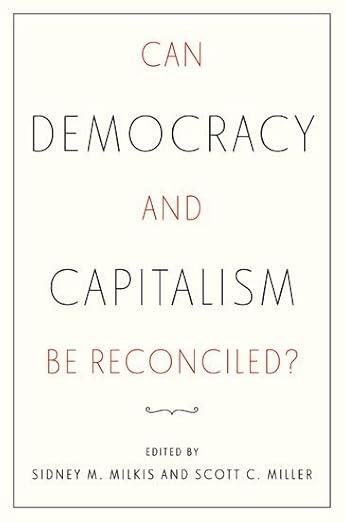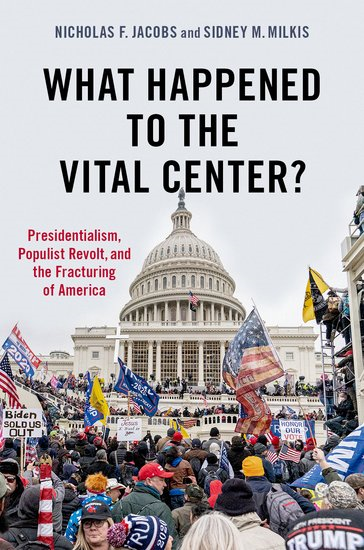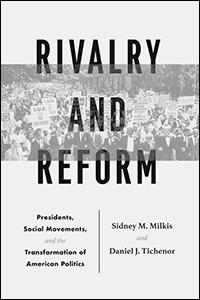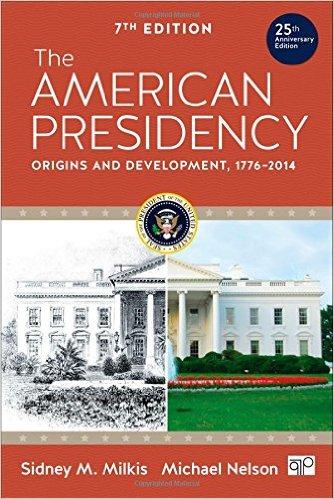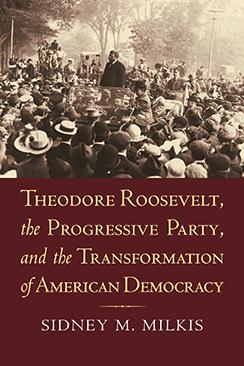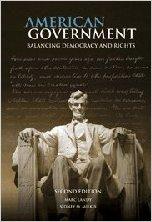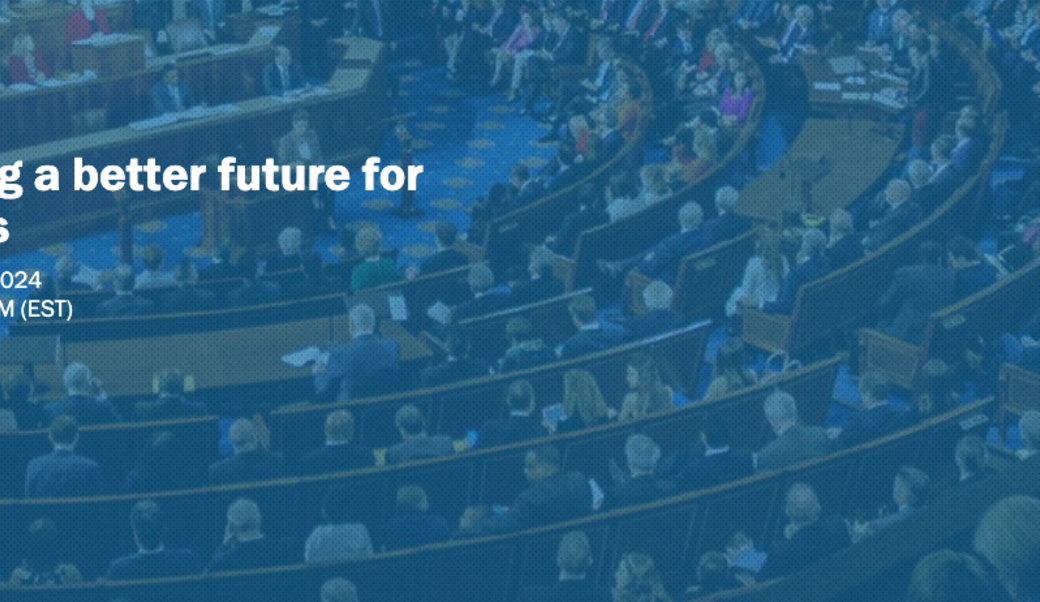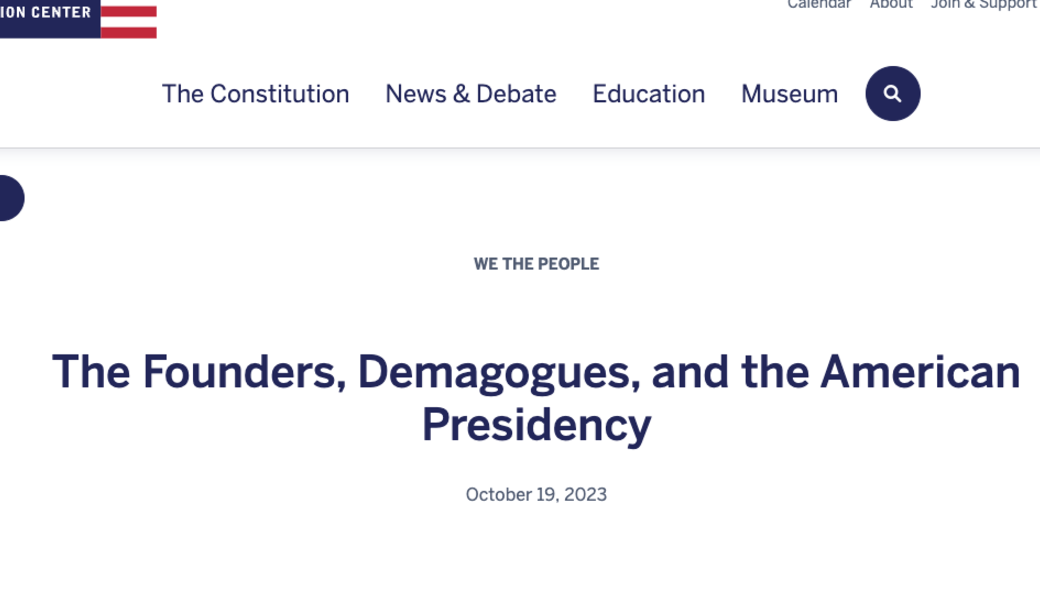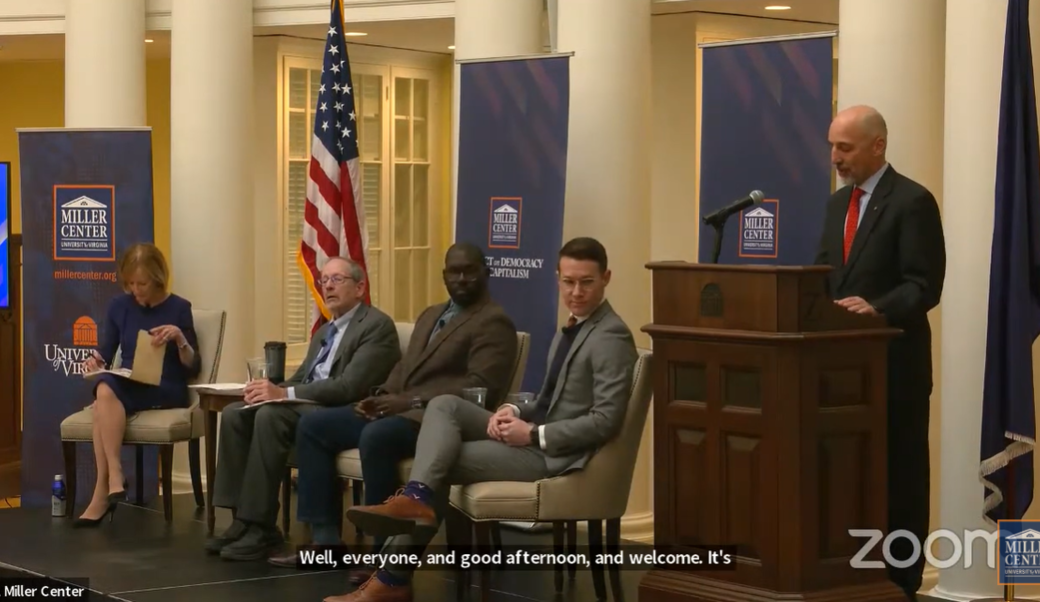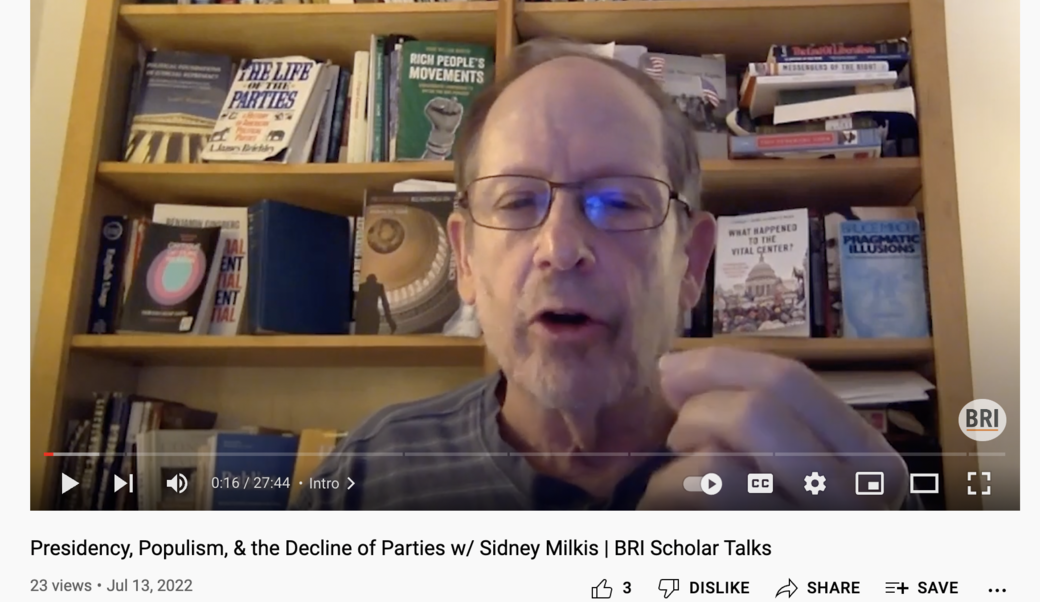White Burkett Miller Professor of Governance and Foreign Affairs
Fast Facts
- Author of What Happened to the Vital Center?
- White Burkett Miller Professor of Governance and Foreign Affairs
- Award-winning educator
Areas Of Expertise
- Social Issues
- Governance
- Elections
- Founding and Shaping of the Nation
- Political Parties and Movements
- Politics
- The Presidency
Sidney M. Milkis is the White Burkett Miller Professor of Governance and Foreign Affairs and a professor of politics. His research focuses on the American presidency, political parties and elections, social movements, and American political development. In addition to teaching undergraduate and graduate students, he regularly gives public lectures on American politics and participates in programs for international scholars and high school teachers that probe the deep historical roots of contemporary developments in the United States.
Milkis earned a BA degree from Muhlenberg College and a PhD in political science from the University of Pennsylvania.
Sidney Milkis News Feed
As we head toward the 2024 election, partisan dysfunction threatens to fracture the United States Congress, one of the pillars of our American constitutional system. When did Congress work better, and why? How could it function well again?
Sidney Milkis, the Miller Center's White Burkett Miller Professor of Governance and Foreign Affairs, moderates a conversation about the past, present, and future of Congress with William Galston, Molly Reynolds, and Philip Wallach, whose new book, Why Congress, was named by the Wall Street Journal as one of the best political books of 2023.
Sidney Milkis, the Miller Center's White Burkett Miller Professor of Governance and Foreign Affairs, moderates a conversation about the past, present, and future of Congress with William Galston, Molly Reynolds, and Philip Wallach, whose new book, Why Congress, was named by the Wall Street Journal as one of the best political books of 2023.
Miller Center Presents
Three leading experts on American presidents—Sidney Milkis and Barbara Perry of the University of Virginia’s Miller Center, and Stephen Knott of Ashland University—warn about the increasingly demagogic nature of the presidency.
National Constitution Center
Leading up to the Miller Center’s 50th anniversary in 2025, this conference shares new ideas and best practices to support a more responsible and effective presidency.
Miller Center Presents
The office of the presidency itself has become a polarizing institution, write Sidney Milkis and Rachel Augustine Potter.
Join Judy Woodruff, PBS NewsHour senior correspondent and former anchor and managing editor, to explore a debate present at America's founding that still permeates our political, economic, and social life—can democracy and capitalism coexist? Jamelle Bouie, New York Times columnist and political analyst for CBS News; Sidney Milkis, the White Burkett Miller Professor of Governance and Foreign Affairs at the University of Virginia; and Scott C. Miller, economic historian and research fellow for the Miller Center's Project on Democracy and Capitalism, examine the relationship between free markets and a free society—and how to balance the freedom and the well-being of American citizens.
Miller Center Presents
Sidney Milkis, the White Burkett Miller professor in the department of politics and faculty fellow at the Miller Center, joins BRI fellow, Tony Williams, to discuss Milkis's book "What happened to the vital center?: presidentialism, populist revolt, and the fracturing of America."
Bill of Rights Institute
